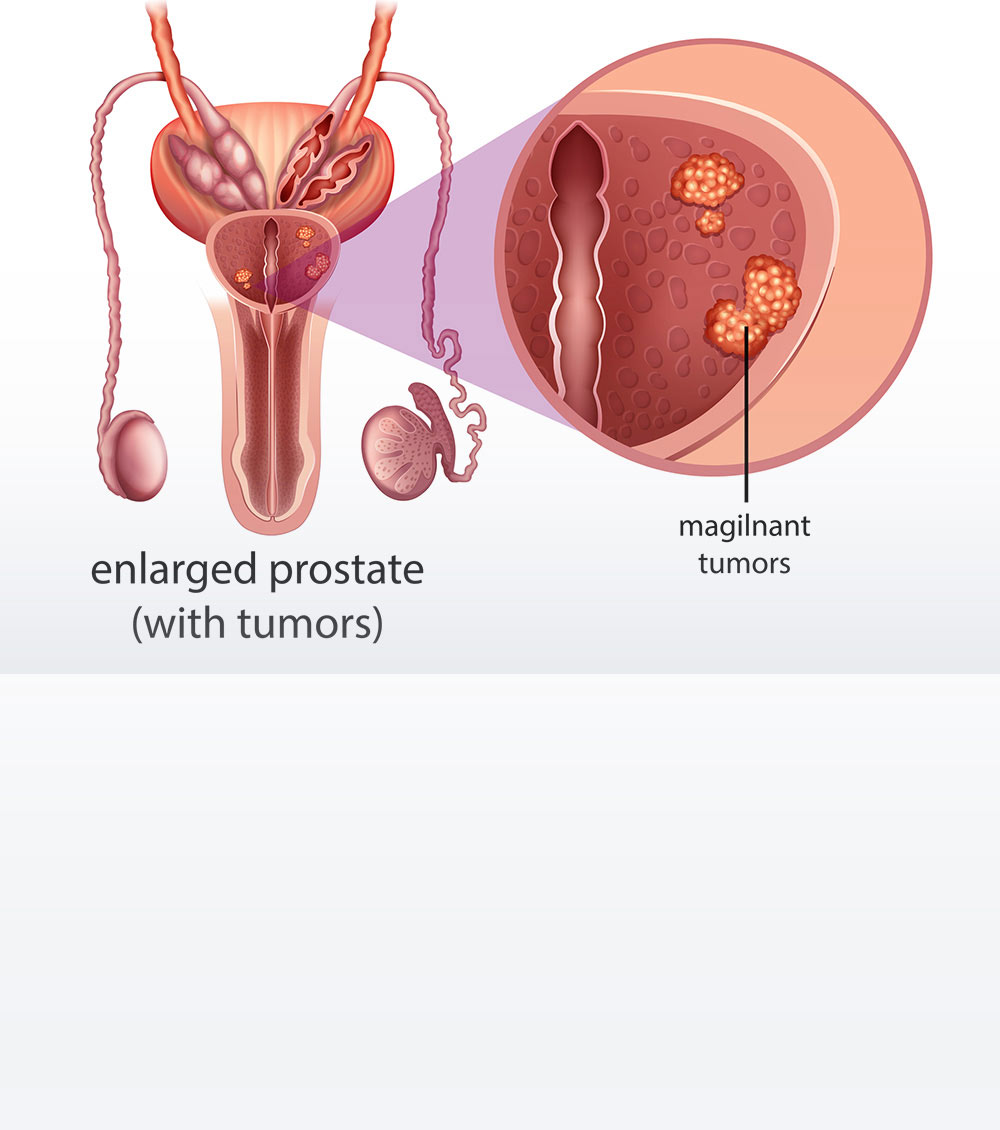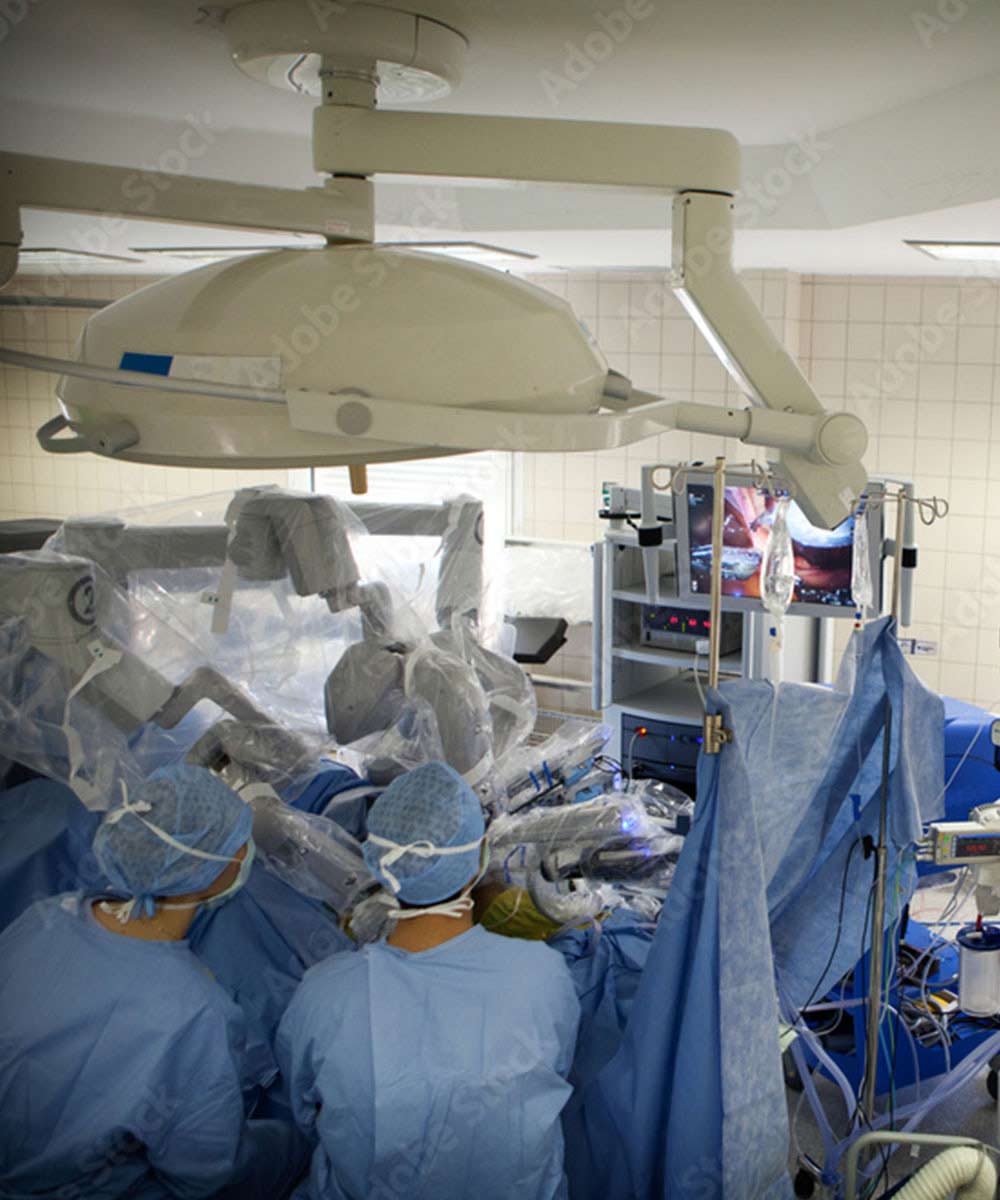Prostate Cancer
The prostate gland is a small organ and a part of the male reproductive system shaped like a walnut and is essentially responsible for producing seminal fluid and transporting sperm. Prostate cancer occurs in the prostate gland and is one of the most common forms of cancer.
It is one of the most common types of cancer in men. Prostate cancer grows slowly and hence does not metastasize quickly hence, it is usually less harmful than other cancer types.
Symptoms of Prostate Cancer:
Prostate cancer may not show any specific signs or symptoms in the early stages, however, later stages of cancer may exhibit any of the following symptoms or problems in men:
Types of Prostate Cancer
Almost all known prostate cancers are adenocarcinoma. Adenocarcinoma develops from the cells that produce the prostate fluid, which is added to the semen. Other insignificant cancer types that affect the prostate gland include:
- Neuroendocrine tumours
- Sarcomas
- Small cell carcinomas
- Transitional cell carcinomas
Precancerous conditions
Research indicates that prostate cancer normally starts as a precancerous condition and can be of the following types:
- Prostatic intraepithelial neoplasia (PIN):In this condition, the anatomy or the structure of the cells of the prostate glands starts to transform and is clearly visible under a microscope. Based on cell structures prostatic intraepithelial neoplasia can be classified as:
- Low-Grade PIN:The patterns of the cell structure appear relatively normal.
- High-Grade PIN:The patterns of the cell structure are relatively abnormal, indicating a possible risk and precursor to prostate cancer.
- Proliferative inflammatory atrophy (PIA):The prostate cells in PIA look smaller than normal with signs of inflammation. However, researchers and professionals do believe that Proliferative inflammatory atrophy can lead to high-grade PIN and thus cancer.

Diagnostics Facilities
Advanced Cancer Diagnostics
Advanced Cancer Treatment
General Diagnostic Facilities
Causes of Prostate Cancer
Multiple risk factors lead to the formation of cancerous cells in the body and some of these risk factors are preventable.
The risk factors include:
- Age: The risk of prostate cancer in men increases with age.
- Family History: If an immediate relative or a blood relative has developed cancer, then the chances of an individual, developing prostate cancer increase.
- Obesity:Overweight or obese increases the risk of developing prostate cancer and treatments do not deliver the desired outcome in such scenarios.
- Genetic factors:Inherited genes, such as BRCA 1 and BRCA 2, which are also responsible for cancers in the female reproductive system, can cause prostate cancers as well. Lynch syndrome is also known to be associated with prostate cancer.
When to see the Doctor?
Symptoms of prostate cancer appear at the later stages of cancer, and hence it would be best to consult our cancer specialist immediately as soon as you experience any discomfort or problems.

Prevention of Prostate Cancer

Screening for Prostate Cancer
Other diagnostic tests that are performed are:

Treatment for Prostate Cancer
The treatment approaches depend on the type, stage and malignant nature of cancer and the individual’s health condition as well. Based on these factors, our specialists recommend the best treatment approaches:
- Brachytherapy: Our specialists place a radioactive seed or capsule into the prostate gland to deliver targeted radiation.
- Conformal radiation therapy: This therapy targets a small area in the gland, thus minimizing the risk of eliminating healthy cells.
Depending on the individual’s health condition, a few complications can occur and the commonly visible complications of the treatments are:
- Incontinence
- Erectile Dysfunction
Doctors

Dr. Shreedhar G K

Dr. Saravana Rajamanickam

Dr. Karthick Rajamanickam

Dr. N. Kathiresan



